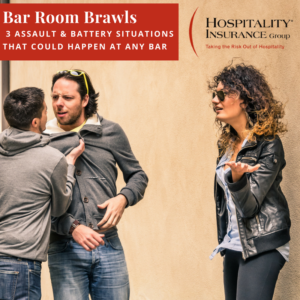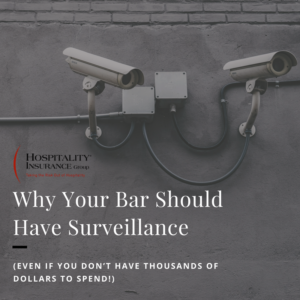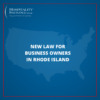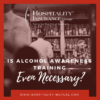How New Restaurant Trends Have Affected Liquor Liability Insurance
Drinking games at bars, BYOB, happy hour, and more. As we celebrate the 25th anniversary of our CEO John Tympanick, John looks back at the last 25 years in business and how new restaurant trends have affected liquor liability insurance.
25 employees, 6 states, over 440 Massachusetts agents, and 1000+ agents across Connecticut, New Hampshire, North Carolina, Pennsylvania, Rhode Island and Vermont. John Tympanick looks back at the last 25 years as Hospitality Insurance Group’s CEO and discusses the restaurant industry trends and changes he has seen over the years that have had an impact on insurance policies.
A lot has evolved over the last 25 years. Take a look at some of the trends we’ve seen in the industry over the years and how in fact it has affected insurance policies of businesses that serve alcohol.
Ditching The Suit & Tie
More and more companies are looking to promote a laid back workplace and offer beer on Friday’s. What many employers and HR departments don’t understand is they need liability insurance for something like that. What happens when an employee has had too much to drink, and they get in the car, and the unnecessary happens?
BYOB
Under Massachusetts law, restaurants with 30 seats or fewer, dine-in service, or who already have existing liquor liability insurance are unable to offer “BYOB” allowing a patron to bring in their own alcohol onto their premises.
However, Massachusetts restaurants without an existing liquor license, on the other hand, may or may not be allowed to obtain BYOB licenses depending on the municipality in which they are located.
While BYOB may seem like a great alternative to restaurants that can’t obtain liquor licenses, Tympanick advises that there is still a risk involved.
“A lot of people think by letting someone BYOB; there isn’t a liability. But what happens when someone comes in with their bottle, already intoxicated, and leaves your restaurant? We think there is definitely an exposure there for the restaurant.”
A waitress in Somerville also reacted to the BYOB concept in a blog by Thrillist stating: “I wouldn’t want to work at a BYOB because it makes policing intoxicated customers and preventing over-serving difficult, “but it does shift [some] responsibility away from the server and the restaurant.”
Alcohol In Supermarkets
Remember when alcohol became available in supermarkets like Stop & Shop back in 2006? Current laws in Massachusetts only permit a maximum of 3 liquor licenses per corporation in the state. This is why you see alcohol available in some grocery stores but not others. We do think that in the next 25 years, Massachusetts will reconsider and make more licenses available to corporations as mentioned in an article here from 2011.
Cork It
Another trend we’ve seen in the last 25 years is charging a “cork fee” where the customer brings the liquor to the restaurant, and they charge you a bottle fee. Although this may help a restaurant save on costs and space for inventory, does having a cork fee increase the liability for a restaurant because they are now charging? We believe either way there is a liability, but ultimately it’s a judge’s decision.
Sunday Funday
Possibly because of the economy, the state has become more lenient on “Blue Laws.” Back in 2003, residents of Massachusetts were not allowed to purchase alcohol on Sundays. Then in 2014, Massachusetts altered its “Blue Laws’’ to allow for retail liquor stores to open as early as 10 am on Sundays.
Increase in Claims For Assault & Battery
As for the insurance industry, insurers have opted to tighten their belts with restaurants by placing sub limits on liquor liability assault and battery coverage. Out of the total number of insurance claims by restaurants, 35% are assault and battery related, a huge increase compared to 25 years ago.
For that reason, Hospitality Insurance Group does not sub-limit their insurance policies to their insured, whereas the majority of our competition charges extra for this coverage.
Restaurants Getting Creative
With more and more restaurants opening, we see that they are looking for a competitive advantage among the competition to stay engaged with their patrons. Creative new restaurant concepts where “flaming drinks” are offered may seem innovative, what happens if that drink burns someone? Or offering games such as “beer pong” also known as “Beirut” at bars encouraging patrons to drink more. As more restaurants move toward computerized systems and online technology, cyber security is becoming an area with some large uninsured exposures in some cases. While cyber security is not a current offering at Hospitality Insurance Group, we do see this being a possibility in the future.
But what about the next 25 years and where the hospitality industry is headed?
As allowed by some states, including Connecticut, restaurants can stay open until 3 or 4 am. Do we think that will end up happening in Massachusetts? Probably not, because nothing good happens after midnight, let alone 3 am.
Despite consumer interest and other states like Illinois repealing their happy hour ban, we also don’t foresee Massachusetts lifting the current happy hour ban in place.
As for Hospitality Insurance Group, Tympanick says “We’ve seen a lot of our competitors in various states stop offering liquor liability coverage for one reason or another, so we’re here to stay.”
If you’re a restaurant looking for coverage, please contact one of our state representatives to find a local independent insurance agency near you.


 As the saying goes, “you get what you pay for!” This adage has been around forever and it is as true now as the first time the statement was made.
As the saying goes, “you get what you pay for!” This adage has been around forever and it is as true now as the first time the statement was made.  For any establishment that serves alcoholic beverages, a fight possibly breaking out is always in the back of any owner’s mind.
For any establishment that serves alcoholic beverages, a fight possibly breaking out is always in the back of any owner’s mind. 




